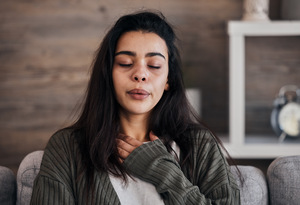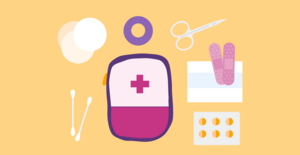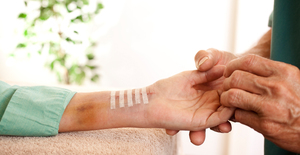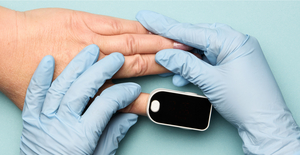Key points
- Pesticides and multiple types of bacteria were found on 98% of tested apple samples, suggesting organic apples may be healthier.
- Properly washing, preserving, and storing apples can prevent bacterial growth and potential health issues.
- Diabetics should monitor sugar consumption during fall due to increased availability of sweets, to avoid high glucose levels and potential health risks.
- Properly cooking turkey, including reaching the correct internal temperature, can prevent salmonella and other foodborne illnesses.
- Overall, the article provides safety tips for fall treats to keep individuals and families healthy, and to avoid the need for emergency medical care.
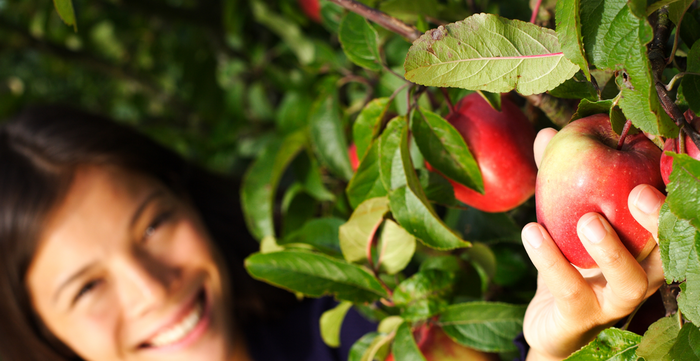
Fall is the time for pumpkin and apple picking, and trick or
treating. As well, many people start freezing or preserving the fruits
they pick. These four safety tips for fall treats will help you avoid
harmful bacteria. They will also help you to stay healthy while
preserving fruit, and teach you how too many sugary treats can be
harmful to diabetics.
Eat Healthy Apples
Forbes.com reports
the Environmental Working Group's analysis of USDA data revealed
"pesticides showed up on 98 percent of more than 700 apple samples
tested," and these were washed apples. In addition, it wasn't just one
type of bacteria found on these tested apples, but 48 different kinds.
However, organic apples are free of pesticides and grown organically so not only are they healthier for you, they're fresher. Forbes also says the cost of organic apples is comparable to non-organic apples. Once ingested, harmful bacteria can cause digestive problems including nausea and vomiting. Certain bacteria can spread quickly. If you feel sick after purchasing non-organic apples, seek out an urgent care center for the appropriate medical treatment. Keep in mind, even organic apples should be washed correctly.
Preserving Apples: Freezing, Canning, and Drying
The University of California (UC) offers a great guide on how to preserve, freeze, and store apples. The tips say:
- Always wash apples under running water and use a scrub brush before eating. Never place apples in a sink full of water as bacteria could be presents.
- Learn which apples are best for eating, preserving, or for baking purposes. The UC guide offers an informative list.
- Follow the UC guidelines on freezing, preserving, and storing apples. Learn which additives to include for preserving, how to make sure canning jars are capped tightly and ways to dry out apples correctly. Preserved apples make a great snack.
Apples not properly stored, frozen, or canned can grow tons of bacteria, so do some research before you begin these homemade projects.
Diabetics Need to Watch Sugar Consumption
Fall often involves lots of sweets from Halloween candy to Thanksgiving desserts. Too much sugary candy can raise glucose levels in diabetics and if your glucose levels are too high, diabetic shock or comas can occur. The Joslin Diabetes Center says diabetics, including adults and kids, can take control of Halloween candy consumption using the following tips:
- Make sure insulin levels are where they should be before consuming even small amounts of candy.
- Have healthy treat alternatives on-hand.
- Avoid candies with a lot of fat like those containing chocolate.
- Talk to your children about the importance of reading candy labels.
- Save some of the candy and pack one piece in lunch boxes each day.
- Plan trick or treat alternatives like family costume parties with healthy foods, gameplay, and exchanging toys for collected candy.
- Work with your kids to develop a plan to donate Halloween candy. One good idea is to send it to our troops overseas.
If
you set rules on trick or treating, find a plan for the candy, and
teach your kids to eat smaller portions, it will be easier to make
Halloween a fun event. High glucose levels can be dangerous, so if your
child consumes too much candy and sugar levels are high, know the
walk-in clinics near you to receive medical care.
Salmonella in Turkey
Fall is also the season for turkey. It's important to learn the proper way to cook a turkey including what internal temperature is necessary before consumption. Salmonella bacteria dies during cooking, so never eat raw turkey. Don't wash your turkey in the sink to avoid cross-contamination with other foods or sink bacteria.
These four safety tips for fall
treats will keep you and your family healthy and most importantly,
avoid ruining your holiday fun and ending up in retail clinics offering
emergency medical care.
FAQs
Are organic apples healthier than non-organic ones?
Yes, organic apples are typically free of pesticides and harmful bacteria, making them a healthier choice.
How can I safely preserve and store apples?
Always wash apples under running water, and follow guidelines on freezing, preserving, and storing to prevent bacterial growth.
What precautions should diabetics take during fall?
Diabetics should monitor their sugar intake, maintain their insulin levels, and have healthy treat alternatives on-hand due to increased availability of sweets.
How can I prevent salmonella when cooking turkey?
Ensure the turkey is cooked to the correct internal temperature, as this kills salmonella bacteria. Avoid washing the turkey in the sink to prevent cross-contamination.
What are some alternatives to trick or treating for diabetics?
Some alternatives include family costume parties with healthy foods, gameplay, and exchanging toys for collected candy. You can also work with your kids to develop a plan to donate Halloween candy, such as sending it to troops overseas.
What should I do if I feel sick after eating non-organic apples?
If you feel sick after eating non-organic apples, you should seek out an urgent care center for the appropriate medical treatment.
How can I properly store apples to avoid bacteria growth?
Apples should be properly stored, frozen, or canned to avoid bacteria growth. This involves following guidelines on freezing, preserving, and storing apples, such as making sure canning jars are capped tightly.
What should I do if my child consumes too much candy and their sugar levels are high?
If your child consumes too much candy and their sugar levels are high, you should know the walk-in clinics near you to receive medical care.

